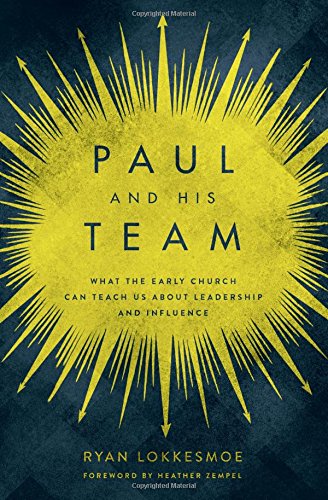Paul and His Team
By Ryan Lukkesmoe
- Paul found common ground almost everywhere he went. Because of his upbringing, where he was from and what he did, he was able to find common ground with many people. Common ground does not guarantee success, but it helps tremendously doing ministry.
- Paul spoke to the Jews as Jews and to the Gentiles as Gentile. He became all to win some.
- Seeking common ground with others is wise because it is disarming.
- Too many times we have an “us versus them” mentality. We must drop that and find common ground with the lost.
- Spiritual growth takes time. Acts 15:10–11
- If we’re not careful, we are guilty of overburdening our children because they are not as mature spiritually as we are. We must be careful about putting too much emphasis on rules.
- It is easy to overburden young Christians. People do not change overnight. Over time we resemble Jesus more and more because the Holy Spirit is working in our lives.
- Paul realized he needed others. Luke, Titicus, and others helped Paul do much more than he could do on his own. Moses had to learn this lesson as well (Exodus 18:18). These men did not live alone, and we were not meant to live alone either.
- Give people credit, see them as equals, and let them help you.
- Paul called people fellow-workers. He recognized he needed them and was better because of them.
- Peacemaking is vitally important today. It was a teaching from Christ, but one that is not seen often. Sadly, if you do not make peace or take initiative to make peace, it most likely will not be made.
- Peace is not made easily and is great greatly neglected today in the church.
- 2 Timothy 2:23–25
- Cristians should avoid conflict as much as possible. Strive for unity, not division.
- Jesus called us to love our enemies, the ones who hate us. If we are to love the ones who hate us, how much more should we love God’s children.
- Great influencers make people feel encouraged and valued. Paul recognized and mentioned others in about every epistle he wrote.
- We are to forgive and reconcile because that is what Christ did for us and teaches us to do with others.
- The way we handle broken relationships is a picture of Christ to a watching world.
- If we view ourselves as irreplaceable, we do a disservice to the ministry and all those around us.
